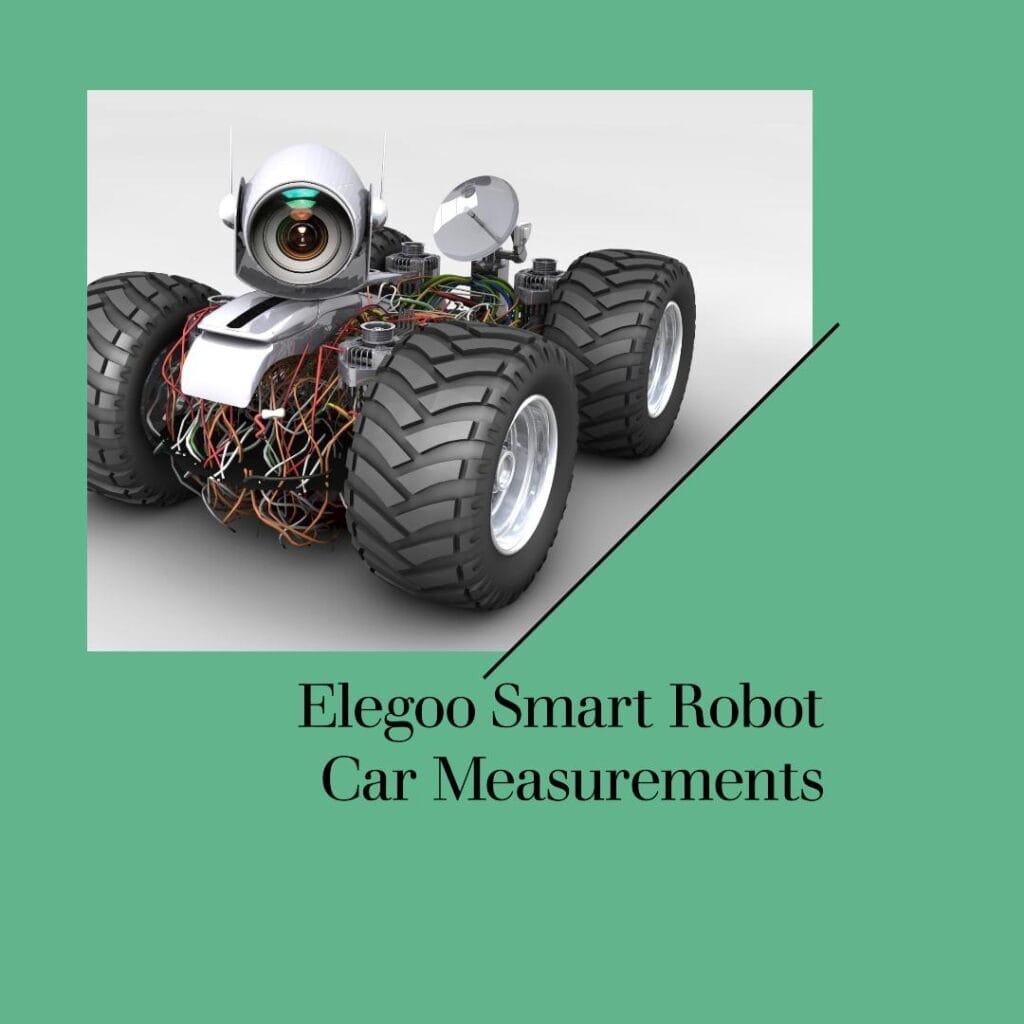
Designed for beginners, the flexible Elegoo Smart Robot Car lets enthusiasts and students explore the realm of do-it-yourself robotics. Planning projects, guaranteeing fit with add-ons, and maximizing performance all depend on knowing the measurements of every component of the robot car. Let’s investigate every measurement required for construction and optimization of the elegoo smart robot car measurements.
What is the Elegoo Smart Robot Car?
Designed for both novice and experienced users fascinated in robotics, electronics, and programming, the elegoo smart robot car measurements is a kit. The car comprises a chassis, motors, wheels, sensors, and a microcontroller board fit for Arduino. These parts let it handle a variety of chores, from line-following to obstacle navigation.
Importance of Knowing the Measurements
Working with robotics requires accurate measurements since they ensure that components fit well, operate cohesively, and perform optimally. Measurements also help with modification decisions and selecting extra components, such batteries or sensors.
Chassis Dimensions
Supporting all else, the chassis forms the backbone of the robot. Knowing its dimensions helps you decide how much room you can afford for extras, extra sensors, or electronics.
- Length: 170mm
- Width: 100mm
- Height: 30mm
This compact size allows for smooth navigation in confined spaces, making it suitable for indoor projects.
Wheel Measurements
Movement, speed, and maneuverability all depend on the wheels in some major part. The way the car interacts with varied surfaces and its capacity for exact turns depend on accurate wheel measurements.
- Diameter: 65mm
- Width: 26mm
These measurements are ideal for maintaining stability and speed, and they offer a balance that allows the robot car to handle various terrains smoothly.
Distance Between Wheels (Axle Length)
The distance between the two wheels, or axle length, impacts the robot’s turning ability and stability.
- Axle Length: 85mm
The robot can turn easily with an 85mm axle length and keep equilibrium at same. For forward motion as well as handling tight curves, this arrangement is superb.
Motor Specifications
Motors decide the robot’s speed, power, and general movement efficiency. Understanding the motor dimensions will enable one to either replace or upgrade them if necessary.
- Motor Length: 35mm
- Motor Width: 20mm
- Output Torque: 0.5Nm
These motors provide enough torque to handle the weight of the car while allowing it to reach a decent speed, ideal for basic navigation tasks.
Sensor Placement and Dimensions
Essential for obstacle recognition and line-following capability, the Elegoo robot car boasts an ultrasonic sensor and multiple infrared sensors.
- Ultrasonic Sensor Dimensions: 45mm x 20mm x 20mm
- IR Sensor Dimensions: 15mm x 8mm
Effective obstacle avoidance and line identification depend on these sensors’ arrangement. To guarantee complete coverage, they are set front and base of the car.
Camera (Optional Add-on) Dimensions
Adding a camera allows the car to engage in more complex tasks, such as object recognition and visual tracking.
- Camera Dimensions: 32mm x 32mm
The camera can be mounted on the front for optimal visual range. Placement should consider clear sight lines and minimal obstructions from other parts.
Battery Compartment Size
The battery compartment needs to fit securely within the chassis to power the car effectively without weighing it down.
- Battery Compartment Dimensions: 70mm x 50mm x 25mm
Though users should verify size compatibility for various battery types, this compartment fits several lithium battery packs and ordinary AA batteries.
Control Board Dimensions
The control board is the “brain” of the robot, holding the microcontroller that processes input from sensors and controls the motors.
- Control Board Size: 68mm x 53mm
The size is compatible with most Arduino boards, and it sits securely on the chassis for ease of access during programming or troubleshooting.
Assembly Space Requirements
Having an appropriate amount of space is important for a smooth assembly process.
- Recommended Workspace: 600mm x 400mm
This workspace allows you to lay out all components and tools comfortably while keeping them organized.
Weight of the Entire Kit
The total weight of the robot car impacts its movement and battery efficiency.
- Total Weight: 500g (with batteries)
A lighter car will be more responsive, while a heavier one may require more powerful motors for similar performance.
Measuring Tools Needed
For those looking to confirm these measurements or customize their build, a few tools are recommended:
- Digital Caliper: For precise measurements
- Ruler: For general measurements
- Screwdriver: For assembly
Conclusion
Knowing the measurements of every component of the Elegoo Smart Robot Car guarantees a flawless construction and a most effective robot. These considerations will help you to boldly build, change, and improve your robot to fit different jobs and surroundings. The basis of a well-built, useful robot automobile is accuracy in these metrics.
FAQs
- What’s the ideal workspace size for assembly?
A workspace of 600mm x 400mm is recommended for easy access to all components and tools. - How do wheel measurements affect performance?
Larger wheels offer better ground clearance, while smaller wheels provide stability and faster maneuverability. - Is the Elegoo Smart Robot Car customizable?
Yes, the car is highly customizable. You can add sensors, cameras, or even upgrade the motors. - What is the weight capacity of the chassis?
The chassis can support about 200g in addition to the standard components before performance starts to decline.
Can I upgrade the motors for better performance?
Yes, you can replace the standard motors with higher torque options for better speed and performance.

